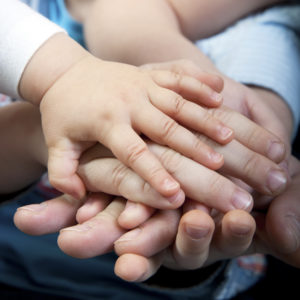5 Steps to Improve Cooperation with Your Kids with ADHD

Are you pulling your hair out trying to think of ways to reduce your frustration and improve your ADHD kid's cooperation? Do you wonder why charts, reminders and incentives don't seem to get your kids to do the stuff they need to do, especially when they have ADHD and related challenges?
Genuine collaboration – working together with your child to find mutually agreed upon solutions to daily challenges – is the answer that you have been looking for.
Using a “We” not “You” Approach
Quite often, children with ADHD get constant feedback about what they are doing wrong, and what they should do instead – at school, at sports, at home. Like most of us, they don't like being told what to do. Even though they may need help sometimes, they frequently have trouble following other people's directions. They lack investment in those solutions because there is no ‘buy in.'
So, how do you foster ‘buy in'? Collaborate with them.
Collaboration, at its core, involves listening and mutual RESPECT. When you collaborate with your child or teen, you approach problems with a “we” attitude instead of a “you” attitude. You work together to address concerns that you both have. This means that everyone acknowledges the problem. But instead of dictating the solutions, as a parent you ask questions and listen to their answers, even when you don't agree. Then you engage in problem-solving together. Their participation, even if it's reluctant, provides the much-needed ‘buy in' for long-term success and cooperation from your ADHD kids.
Of course, there are crisis moments when safety and health concerns mean you step in and make the decisions. For example, if your 8-year-old son wakes up in the middle of the night and plays computer games, then you have to intervene and “be the adult,” putting limits in place that will set your child up for success.
I am not suggesting that you give your child authority over house rules or allow them to determine the parameters of acceptable behavior. I am advocating that you involve your child in the process of creating solutions to challenges that come up in their lives and their family. This is especially important for youth with complex issues like ADHD.
Article continues below...
What's Your Parenting Style?
Take a quiz to find out what kind of a parent you are.
5 Steps to Collaboration
Creating a successful collaboration takes less work than you may think. In the long run, you save all kinds of time by eliminating conflict and unnecessary negotiations – and manage to arrive at cooperation from your ADHD kids! In fact, I've seen families use it with children as young as 5 years old. Here's how to do it:
- Start with a conversation at a planned, specific time. This is a calm talk where you share what is happening in your family. Discuss what has been working well, and the changes you want to see. Describe your frustrations, and then ask your child for his or her perspective. You each talk and you each listen. If you and your child have trouble doing this without interrupting each other, you can use a timer or write comments down.
- Identify areas of agreement. Find behaviors or situations where you both are dissatisfied and pick ONE to address. People can really only change one thing at a time, and this is especially true for kids with ADHD. Clarify what each of you would like to see changed and why.
- Brainstorm ideas that address the mutually agreed upon issue. Hear all of them without judgment, and choose one that you both think is possible to attempt. Make sure your child or teen likes the idea. They don't have to think it will work; they just have to like it enough to try.
- Make a plan, with a clear time frame to try out your collaborated plan (e.g. one week). Agree on this and shake hands as a sign of formalizing your new arrangement.
- Have a follow-up conversation at a planned, specific time to check in on your progress. Make any necessary tweaks and try it again for another week. Give positive feedback to your child or teen, noticing efforts to follow the agreement. This will motivate them to keep going. When the plan is running smoothly, meet bi-weekly to check in. After a few months of success, if you want to address a different behavior, repeat the entire process while continuing to maintain this one.
Foster the Parent-Child Connection
When you include your child in the process of addressing challenging behaviors, by listening to what they are saying, you become an ally, not an adversary. This provides another, all-important ‘buy in': your approval. Your kids with ADHD, despite any words or actions to the contrary, want your love and support. Collaboration offers you an effective way to teach, guide and support them. It builds bonds instead of breaking them down.

